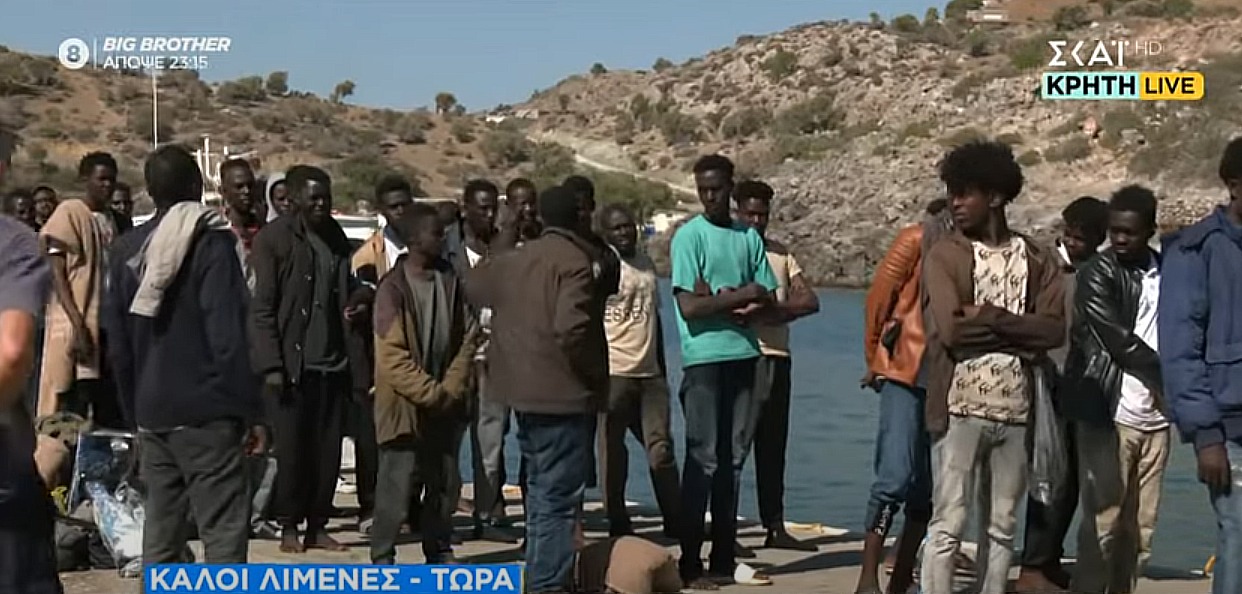
Greece Arrests 4 Sudanese Refugees on Human Smuggling Charges Amid Fears of New Migration Route via Libya
moatinoon
Athens, July 7, 2025 – Greek authorities on Sunday arrested four Sudanese refugees aged between 21 and 30 after they arrived on Greek shores, charging them with illegal entry and facilitating human trafficking, according to local media reports.
The arrests come as Greek courts review 12 similar cases, with activists reporting that at least 75 Sudanese nationals, including minors, are currently detained in Greek prisons on human smuggling charges.
Greek law classifies operating or assisting in operating migrant boats—including simply possessing a GPS-enabled mobile phone—as a serious criminal offense, punishable by life imprisonment.
Meanwhile, the Hellenic Coast Guard, in coordination with the EU’s Frontex agency, commercial vessels, and local fishing boats, rescued more than 1,200 migrants and refugees near the island of Crete on Sunday in one of the largest rescue operations this year. Local media say the boats departed from Libya, raising the total number of arrivals to Crete to around 2,000 in recent weeks.
Sudanese nationals made up a significant portion of the new arrivals—295 out of 603 who landed over the weekend alone.
The recent surge has raised alarm within the Greek government, which fears that the Tobruk–Crete sea corridor could become a new migration route across the Mediterranean, exacerbating existing pressure on Greek reception infrastructure.
In response, Greek Migration Minister Thanos Plevris met with Libyan Prime Minister Abdul Hamid Dbeibeh in Tripoli, accompanied by EU Commissioner for Home Affairs and Migration, Magnus Brunner.
Following the meeting, Dbeibeh pledged to launch a “wide-ranging security campaign” with international assistance to combat human trafficking, admitting that “the migration issue is larger than Libya’s capacity,” according to Greek media and the Libyan Observatory.
Minister Plevris stated that Crete is facing immense pressure from Libya’s eastern coast, and that cooperation with Libya is essential to halting migrant departures before they reach the Mediterranean. He added that both Greece and the European Union are committed to helping Libya detain irregular migrants, prevent departures to EU territory, and facilitate their return to their countries of origin.

